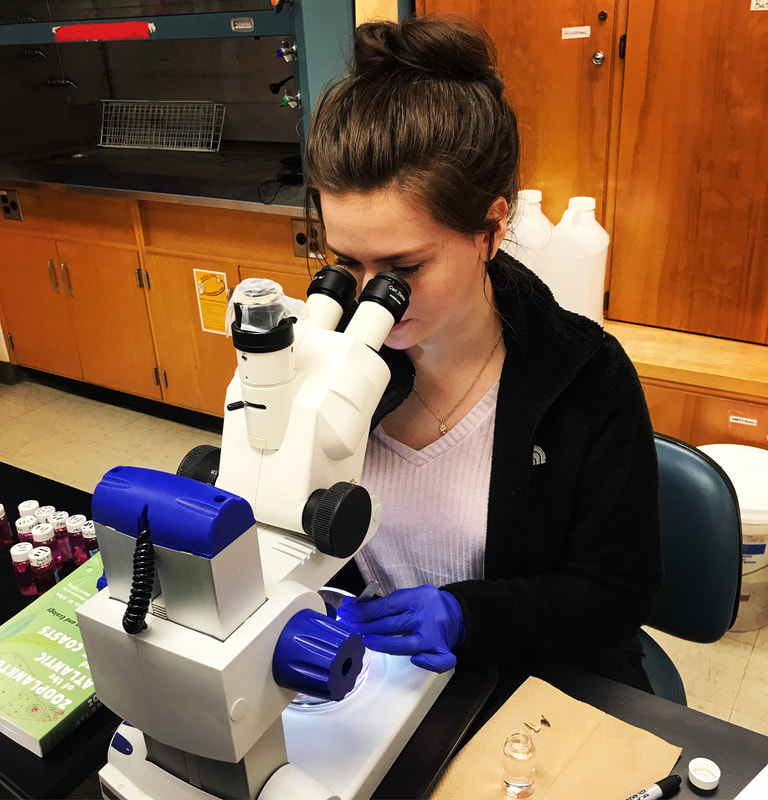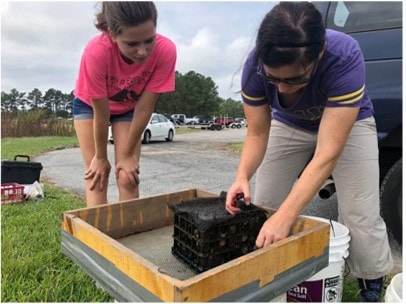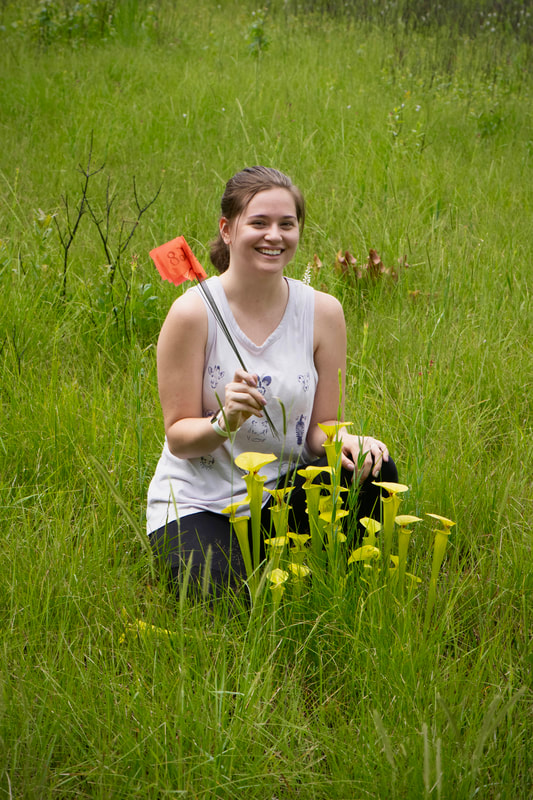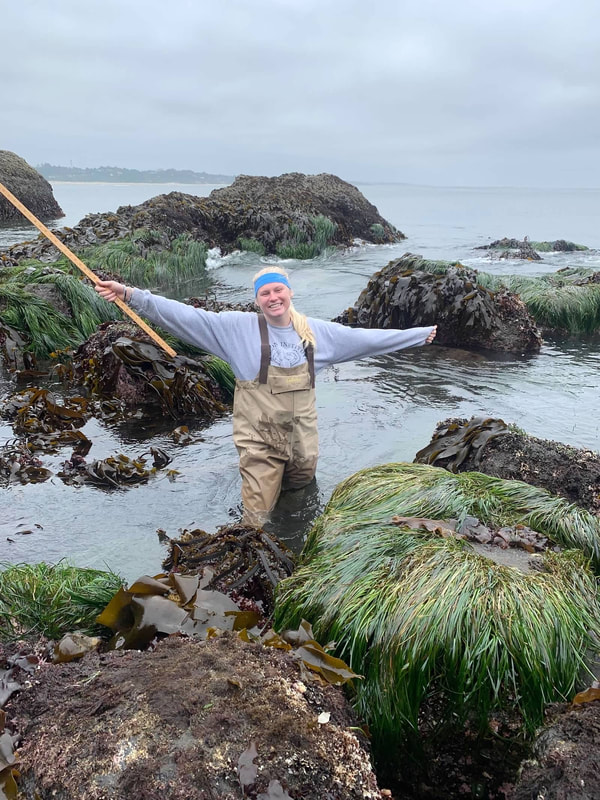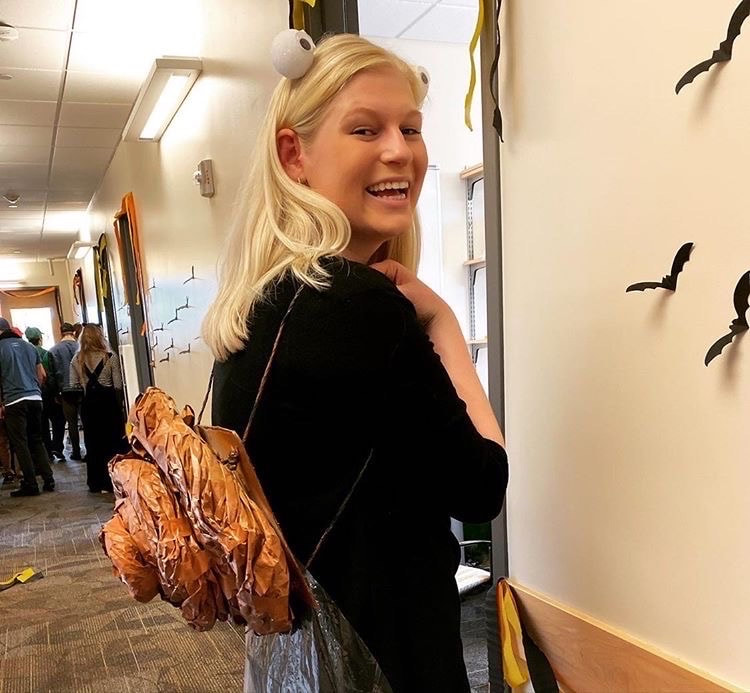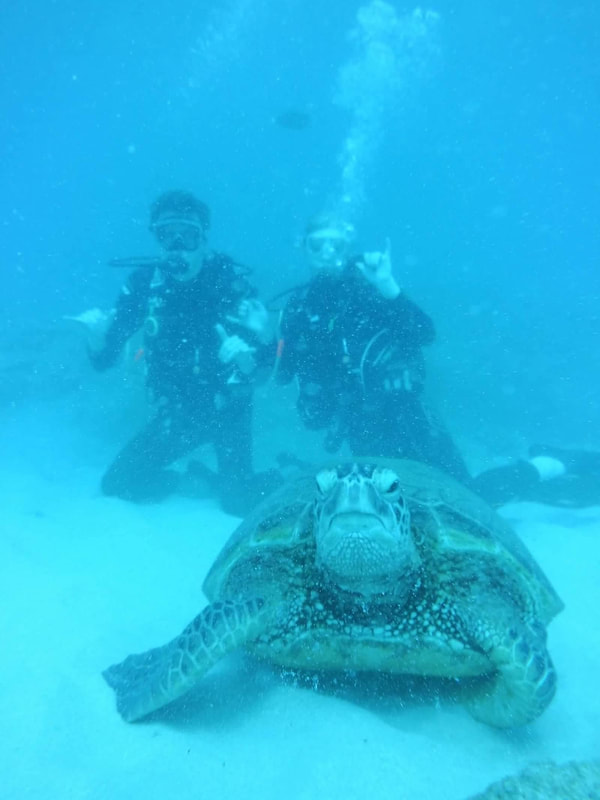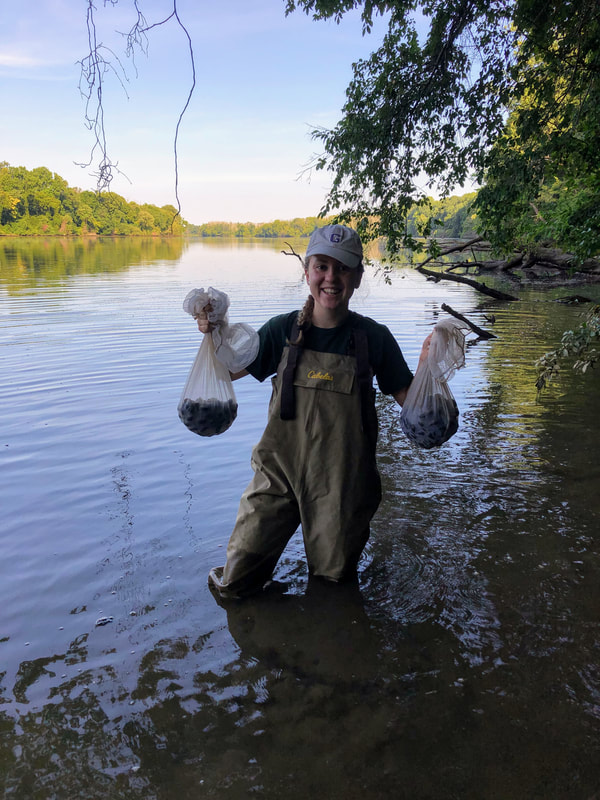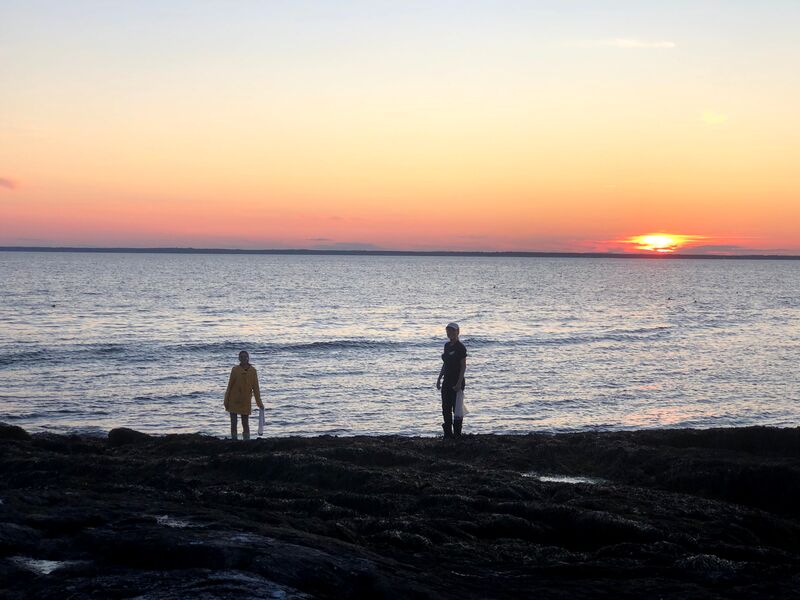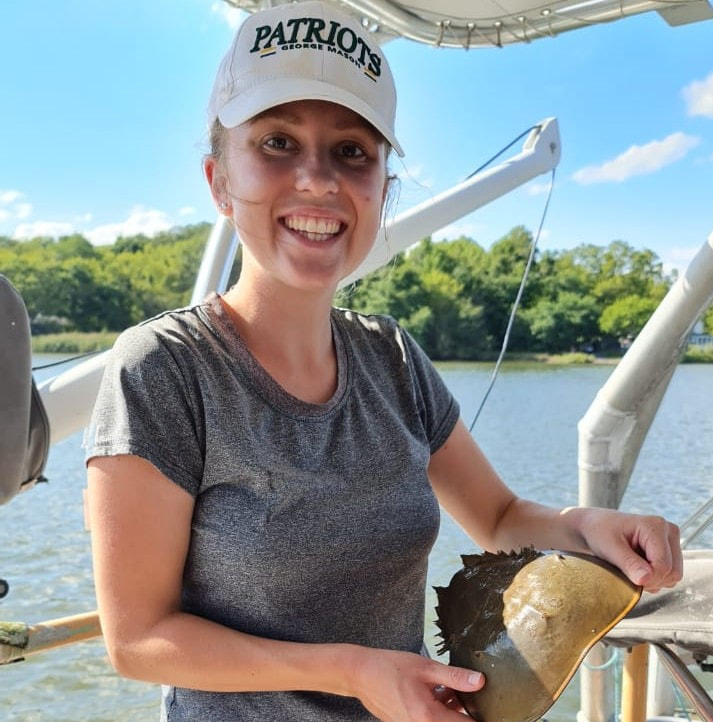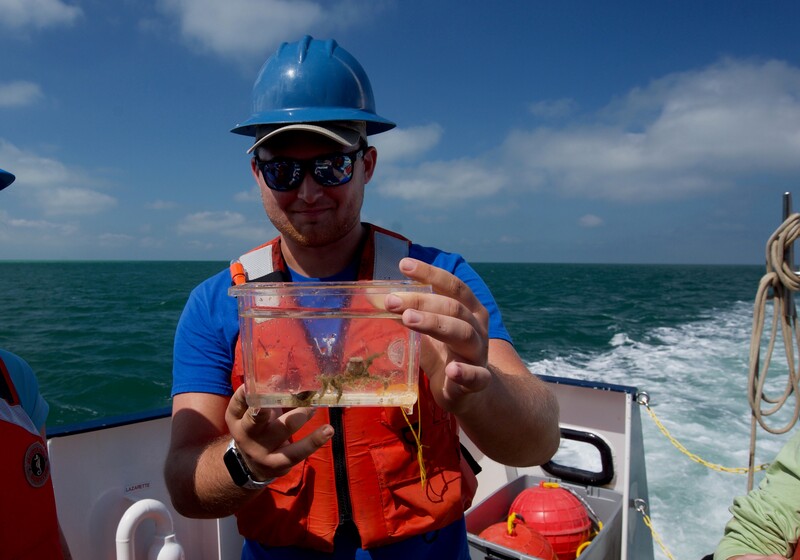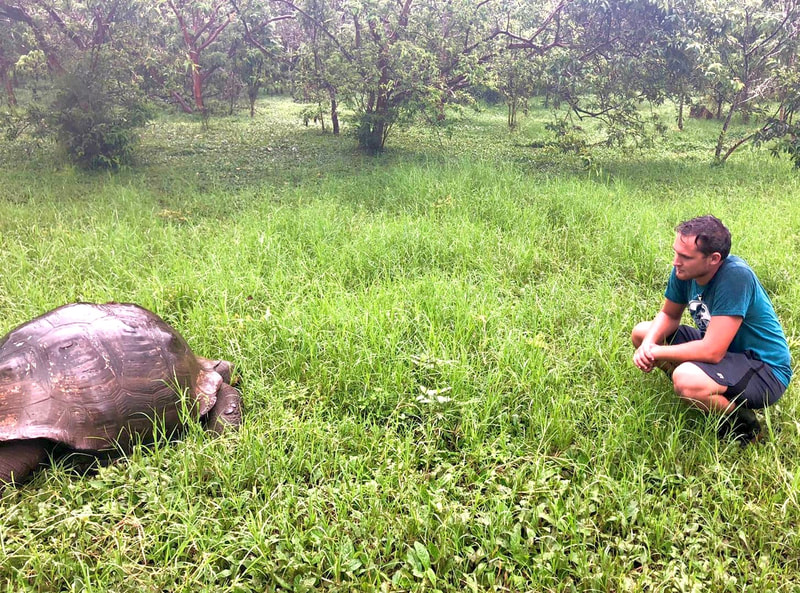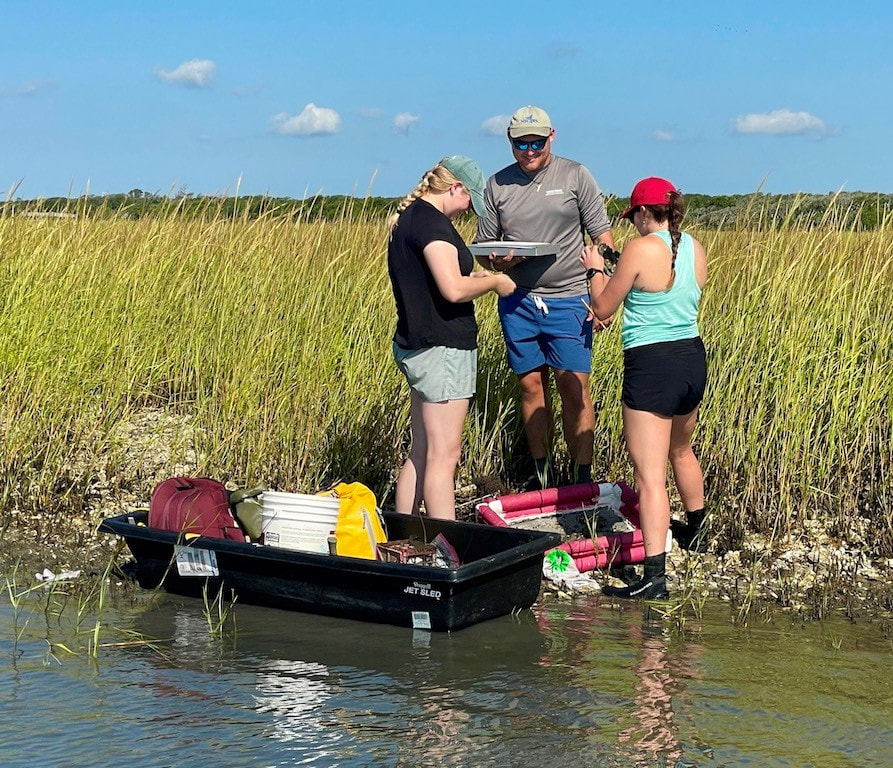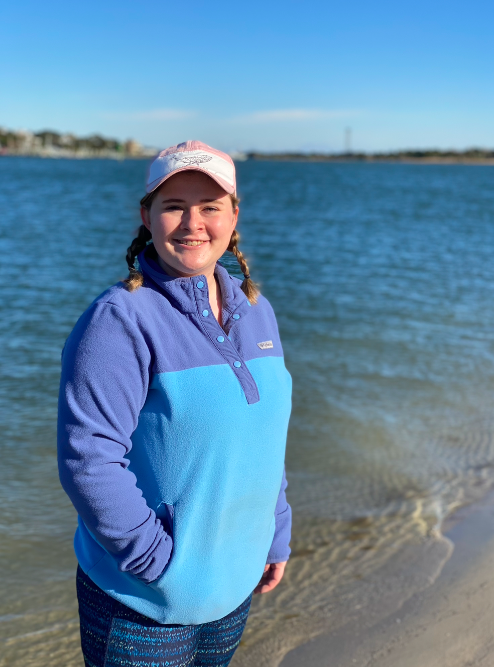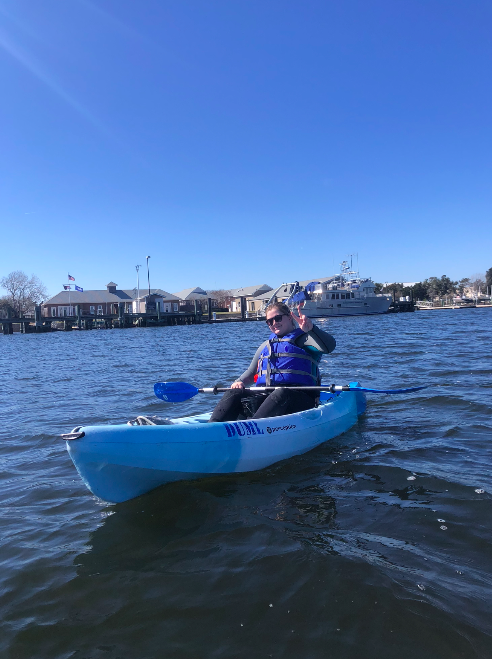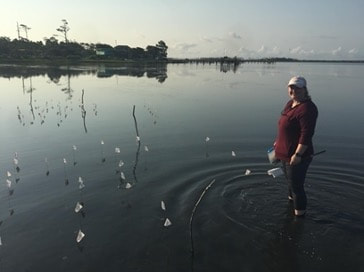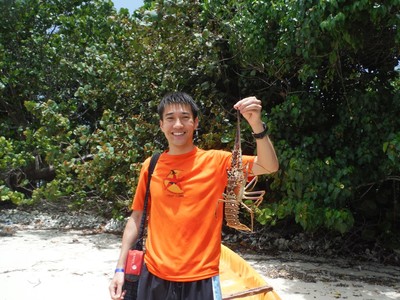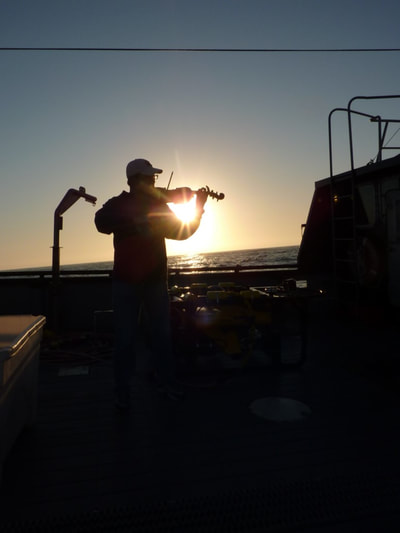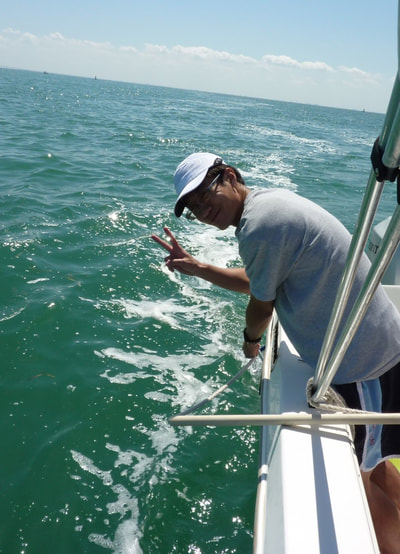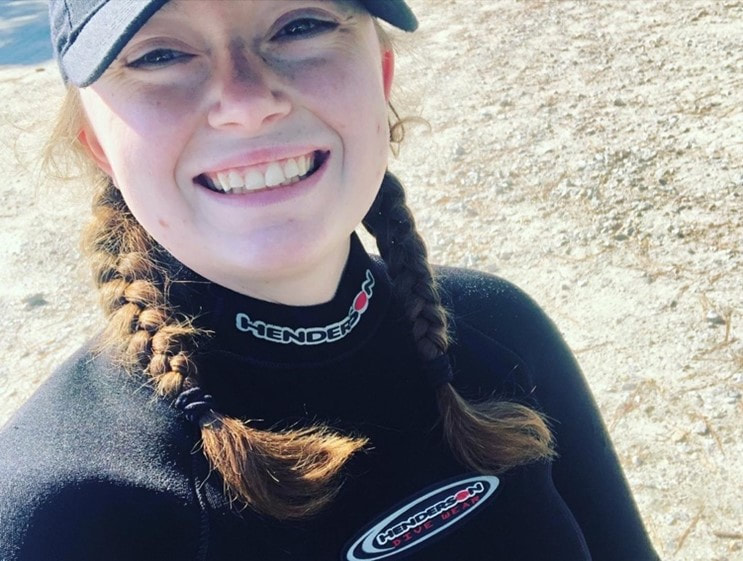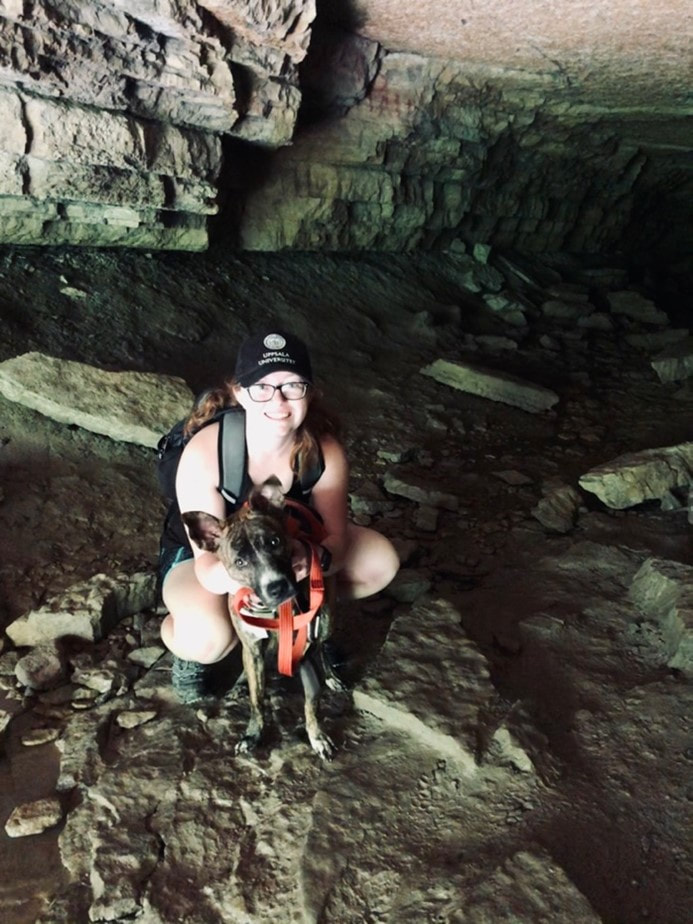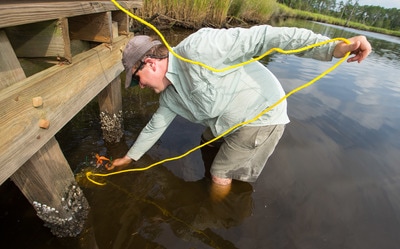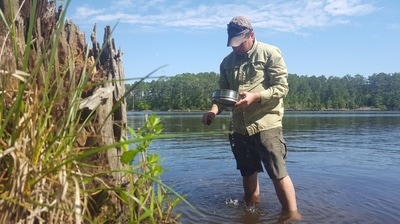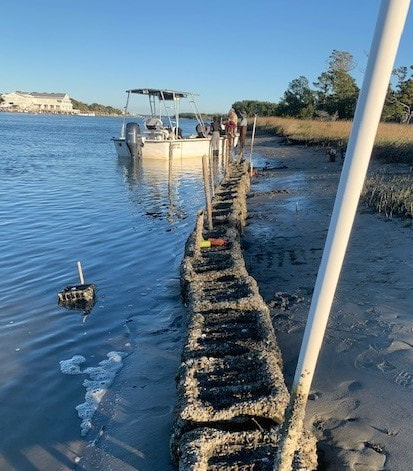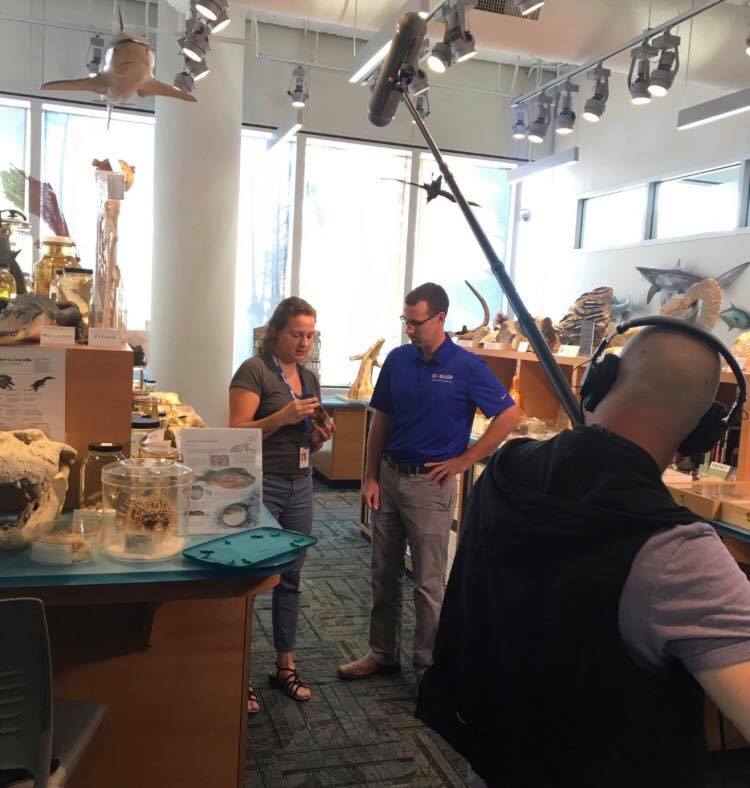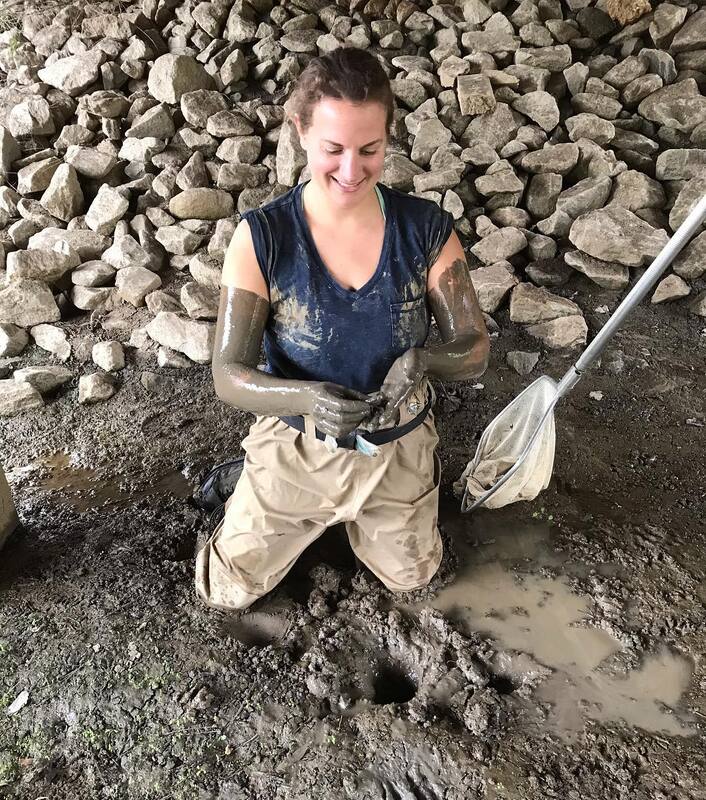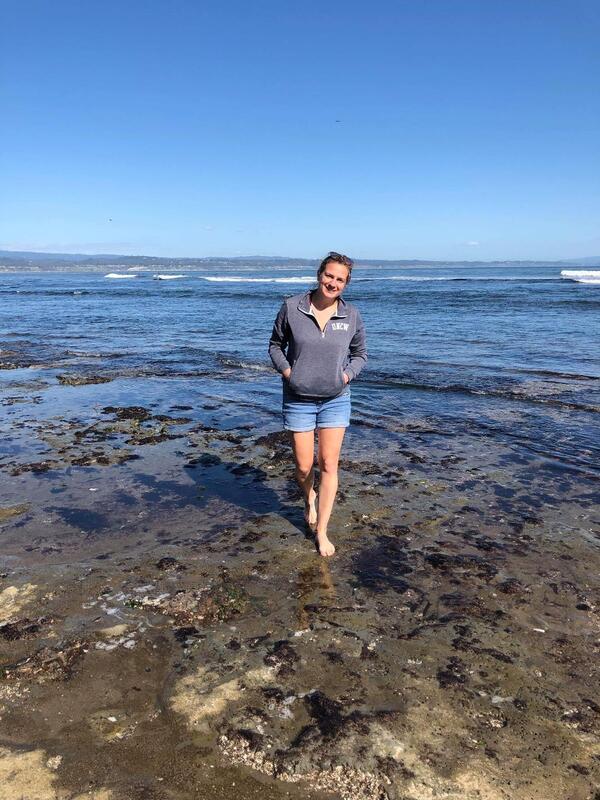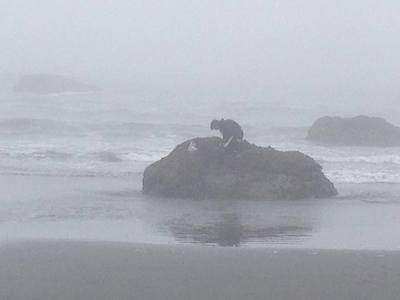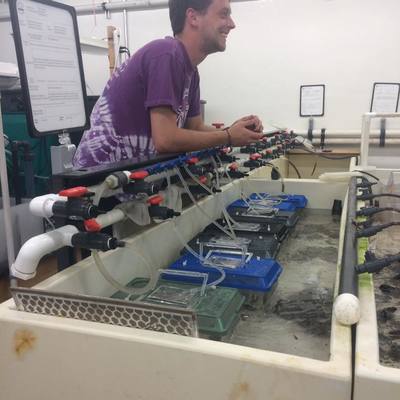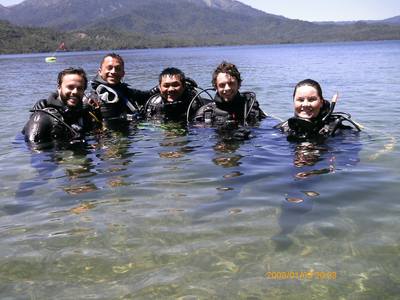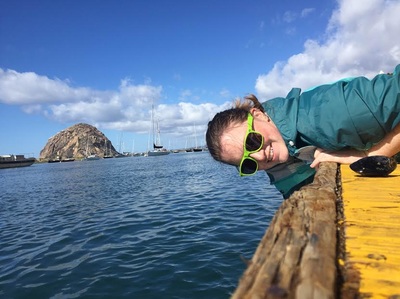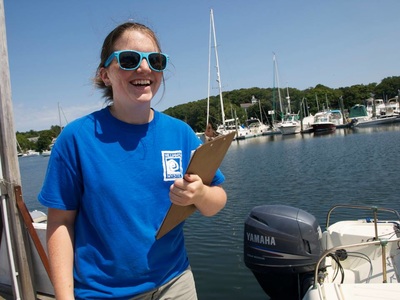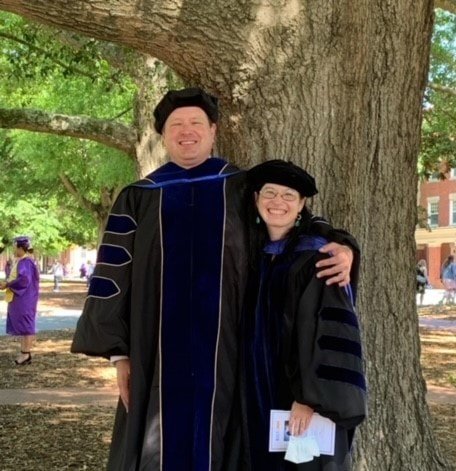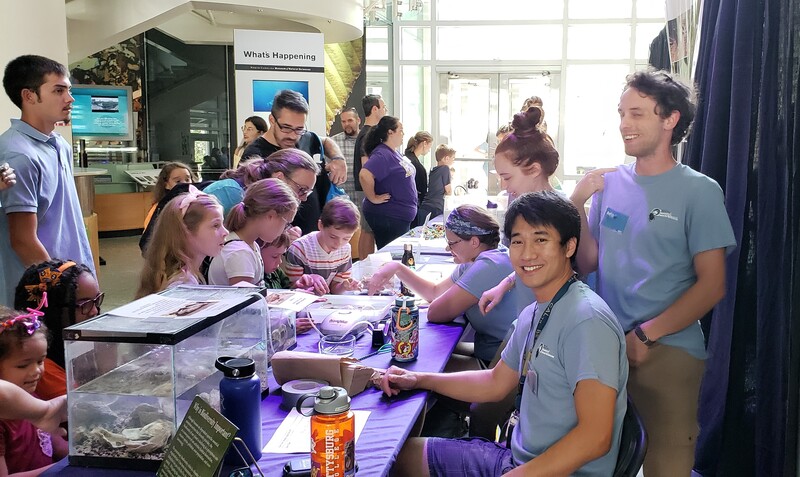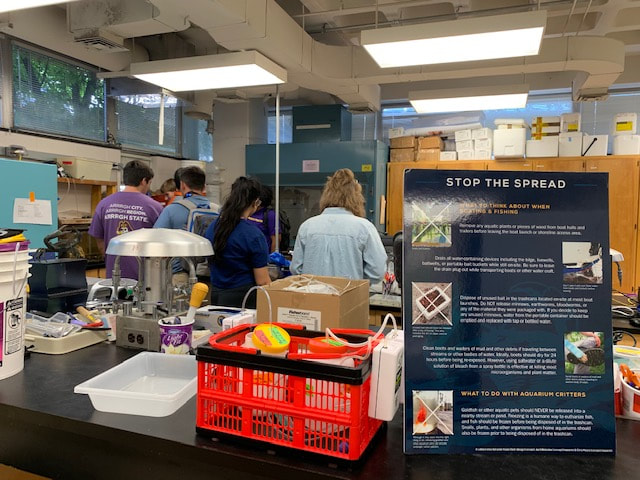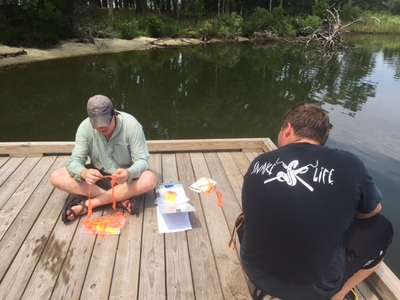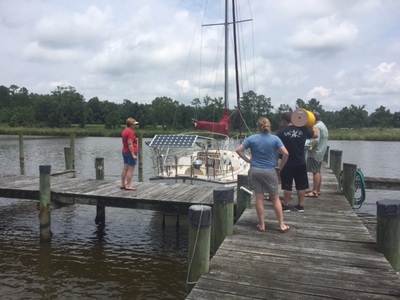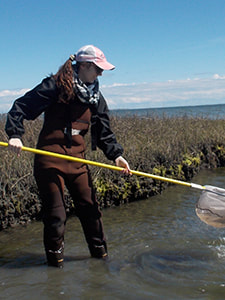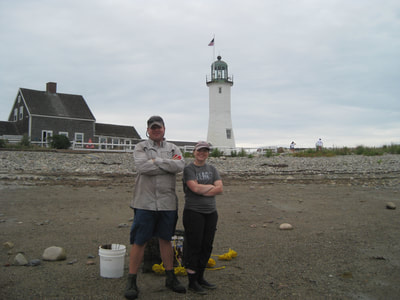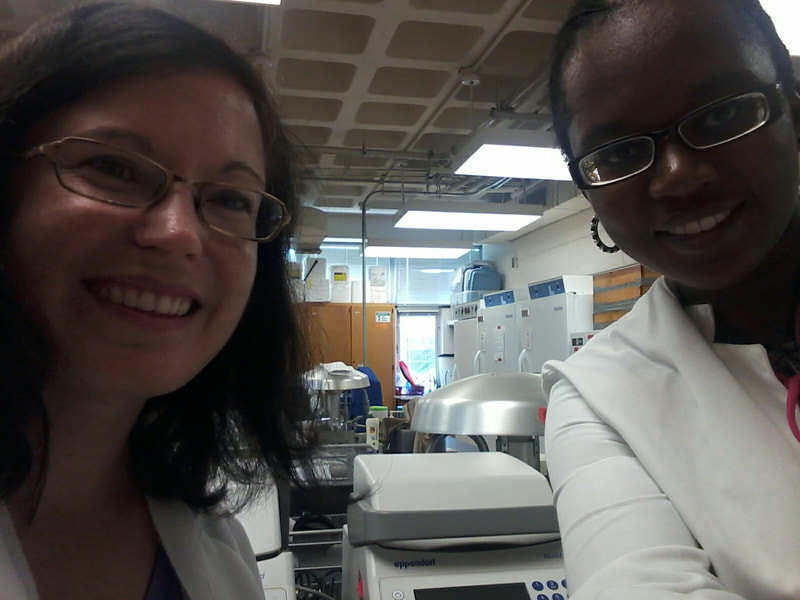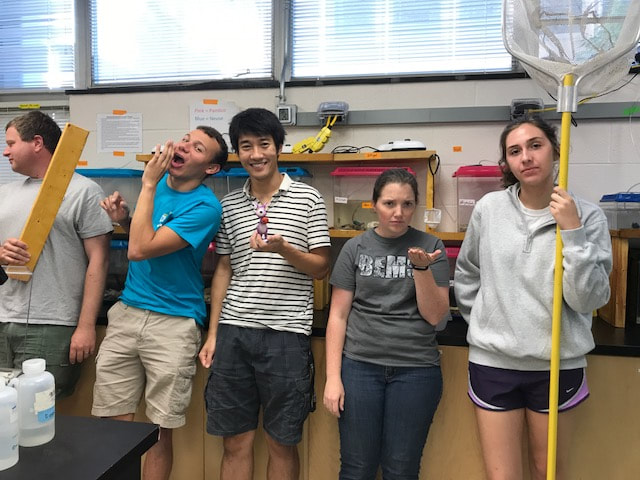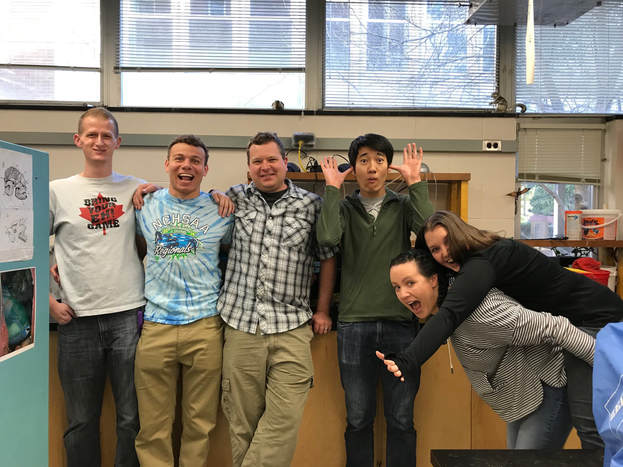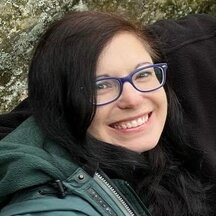
Dr. April MH Blakeslee, Ph.D.: Associate Professor, Biology, East Carolina University (Greenville, NC). Email: [email protected]
Presently, I am a member of the Biology Department at East Carolina University, where I started in 2015 as an Assistant Professor and was promoted to Associate Professor in 2021. I specialize in conservation biology, invasion biology, parasite ecology, biodiversity, and biogeography in marine systems, where my research focuses on these areas (see more detailed information on the Research page). Thus far, I have graduated 2 PhD and 5 MS students, and I am currently mentoring 2 PhD students and 4 MS students at ECU (see information on these students below). Prior to my appointment at ECU, I held an Assistant Professor position at Long Island University-Post. During my time at LIU-Post, I taught several undergraduate courses related to general biology and ecology, and a graduate level course, Marine Ecology. I also developed a productive research program at LIU with undergraduate students and masters' students. I also graduated 3 MS students during this time. Prior to that appointment, I was a postdoctoral fellow in the Marine Invasions Ecology Laboratory at the Smithsonian Environmental Research Center (SERC) in Edgewater, Maryland under the supervision of Drs. Gregory Ruiz and Whitman Miller. While at SERC, I received two postdoctoral fellowships: the first was a Smithsonian Institution (SI) fellowship, where I focused on the populations genetics and phylogeography of a widespread marine snail, and the second was a fellowship through SI's Marine Science Network, where I investigated host-parasite biogeography, ecology, and population genetics in native and introduced regions. Prior to my appointment at the Smithsonian, I completed my Ph.D. at the University of New Hampshire with advisors, Drs. James (Jeb) Byers and Michael Lesser. My PhD was titled: "Resolving the 150 year debate over the invasion history of the common periwinkle snail, Littorina littorea, in northeast North America." I also hold a BA and MA in Biology from Boston University (Boston, MA). My masters thesis was titled: "Site fidelity in a neotropical migrant species, the Ovenbird (Seiurus aurocapillus)."
Contact: [email protected]
Presently, I am a member of the Biology Department at East Carolina University, where I started in 2015 as an Assistant Professor and was promoted to Associate Professor in 2021. I specialize in conservation biology, invasion biology, parasite ecology, biodiversity, and biogeography in marine systems, where my research focuses on these areas (see more detailed information on the Research page). Thus far, I have graduated 2 PhD and 5 MS students, and I am currently mentoring 2 PhD students and 4 MS students at ECU (see information on these students below). Prior to my appointment at ECU, I held an Assistant Professor position at Long Island University-Post. During my time at LIU-Post, I taught several undergraduate courses related to general biology and ecology, and a graduate level course, Marine Ecology. I also developed a productive research program at LIU with undergraduate students and masters' students. I also graduated 3 MS students during this time. Prior to that appointment, I was a postdoctoral fellow in the Marine Invasions Ecology Laboratory at the Smithsonian Environmental Research Center (SERC) in Edgewater, Maryland under the supervision of Drs. Gregory Ruiz and Whitman Miller. While at SERC, I received two postdoctoral fellowships: the first was a Smithsonian Institution (SI) fellowship, where I focused on the populations genetics and phylogeography of a widespread marine snail, and the second was a fellowship through SI's Marine Science Network, where I investigated host-parasite biogeography, ecology, and population genetics in native and introduced regions. Prior to my appointment at the Smithsonian, I completed my Ph.D. at the University of New Hampshire with advisors, Drs. James (Jeb) Byers and Michael Lesser. My PhD was titled: "Resolving the 150 year debate over the invasion history of the common periwinkle snail, Littorina littorea, in northeast North America." I also hold a BA and MA in Biology from Boston University (Boston, MA). My masters thesis was titled: "Site fidelity in a neotropical migrant species, the Ovenbird (Seiurus aurocapillus)."
Contact: [email protected]
Current Graduate Students
Chloe Gabriel: M.S. student, Biology, Summer 2022-present. Co-advised with Dr. Jim Morley.
I am currently a Master’s student in the Blakeslee and Morley labs at ECU. I am originally from Lexington North Carolina. I have always had a love for animals and the environment. Growing up I would spend my days nursing injured critters back to health in a shoe box or volunteering at the local animal shelter. I followed my love of nature to East Carolina University in 2018 to major in Biology. I became involved with research and fieldwork during my first semester at ECU assisting Tim Lee, a PhD student in the Blakeslee lab. My undergraduate fieldwork experience included collecting mud crabs along a salinity gradient in the Pamlico and Neuse rivers to study invasive parasitic barnacles. I also assisted Dr. Trip Lamb and his Master’s student Peter Kann on a project examining host selection in pitcher plant flies. I obtained a B.S. in Biology with a concentration in Ecology and Evolutionary Studies and a minor in Hispanic Studies in 2021. My research interests are endangered species conservation, parasitology, and behavioral ecology. I am currently studying the mechanism of disease spread and prevalence of Black Gill disease in Penaeid shrimp in NC. The hope is to create a disease transmission model that will aid in NC fisheries management as well as creating a publicly available molecular marker that can be used for future Black Gill research and population genetic analyses.
Education: B.S. Biology (East Carolina University 2021)
Contact: [email protected]
I am currently a Master’s student in the Blakeslee and Morley labs at ECU. I am originally from Lexington North Carolina. I have always had a love for animals and the environment. Growing up I would spend my days nursing injured critters back to health in a shoe box or volunteering at the local animal shelter. I followed my love of nature to East Carolina University in 2018 to major in Biology. I became involved with research and fieldwork during my first semester at ECU assisting Tim Lee, a PhD student in the Blakeslee lab. My undergraduate fieldwork experience included collecting mud crabs along a salinity gradient in the Pamlico and Neuse rivers to study invasive parasitic barnacles. I also assisted Dr. Trip Lamb and his Master’s student Peter Kann on a project examining host selection in pitcher plant flies. I obtained a B.S. in Biology with a concentration in Ecology and Evolutionary Studies and a minor in Hispanic Studies in 2021. My research interests are endangered species conservation, parasitology, and behavioral ecology. I am currently studying the mechanism of disease spread and prevalence of Black Gill disease in Penaeid shrimp in NC. The hope is to create a disease transmission model that will aid in NC fisheries management as well as creating a publicly available molecular marker that can be used for future Black Gill research and population genetic analyses.
Education: B.S. Biology (East Carolina University 2021)
Contact: [email protected]
Carter Stancil: IDPBBC student, Biology, Summer 2022-present. Co-advised with Dr. Michael Brewer.
Being in Greenville is the closest I've ever lived to the ocean. Growing up in the Midwest and completing my undergrad at BYU, I never imagined that I'd be able to study marine systems. In my undergrad, though, I was able to seek out several research opportunities and get my feet wet (pun intended). My previous research has focused on marine invertebrates (crabs and snails) located in the Pacific rocky intertidal zone and salt marshes in South Carolina. Since attending the Marine Parasitology & Disease course at the Shoals Marine Institute in the summer of 2021, I have not been able to shake my love for parasites! I am most interested in parasites in ecological studies, their role as indicators of overall ecosystem health, and how they impact conservation efforts and industry.
Education:
BS Microbiology (Brigham Young University 2022)
Contact: [email protected]
Being in Greenville is the closest I've ever lived to the ocean. Growing up in the Midwest and completing my undergrad at BYU, I never imagined that I'd be able to study marine systems. In my undergrad, though, I was able to seek out several research opportunities and get my feet wet (pun intended). My previous research has focused on marine invertebrates (crabs and snails) located in the Pacific rocky intertidal zone and salt marshes in South Carolina. Since attending the Marine Parasitology & Disease course at the Shoals Marine Institute in the summer of 2021, I have not been able to shake my love for parasites! I am most interested in parasites in ecological studies, their role as indicators of overall ecosystem health, and how they impact conservation efforts and industry.
Education:
BS Microbiology (Brigham Young University 2022)
Contact: [email protected]
Grace Loonam: M.S. student, Biology, January 2023 - present. Co-advised with Dr. Rachel Gittman.
I am a Master’s student in the Blakeslee and Gittman labs at ECU. I was born in Seattle, Washington and grew up in South Florida, and as a result I’ve been passionate about marine and coastal systems in all their shapes and forms my whole life. Growing up, I spent the summers in the intertidal of Puget Sound digging up moon snails and kayaking around the bay, and back in Florida I was at the beach on the lookout for manatees and washed-up pieces of coral. After an illuminating week in the Washington Youth Summit on the Environment Program hosted by George Mason University during high school, I ended up there for my undergraduate degree, getting my B.S. in Environmental Science with a concentration in Ecological Science and a minor in Conservation Studies. During my undergraduate career, I worked on projects involving the parasitology of native versus invasive species, the influence of temperature on the emergence of parasites from their hosts, and more at Shoals Marine Laboratory and GMU’s Potomac Science Center. I am broadly interested in conservation biology, ecosystem restoration invasive species, and invertebrate ecology.
Education: B.S. Environmental Science (George Mason University 2022)
Contact: [email protected]
I am a Master’s student in the Blakeslee and Gittman labs at ECU. I was born in Seattle, Washington and grew up in South Florida, and as a result I’ve been passionate about marine and coastal systems in all their shapes and forms my whole life. Growing up, I spent the summers in the intertidal of Puget Sound digging up moon snails and kayaking around the bay, and back in Florida I was at the beach on the lookout for manatees and washed-up pieces of coral. After an illuminating week in the Washington Youth Summit on the Environment Program hosted by George Mason University during high school, I ended up there for my undergraduate degree, getting my B.S. in Environmental Science with a concentration in Ecological Science and a minor in Conservation Studies. During my undergraduate career, I worked on projects involving the parasitology of native versus invasive species, the influence of temperature on the emergence of parasites from their hosts, and more at Shoals Marine Laboratory and GMU’s Potomac Science Center. I am broadly interested in conservation biology, ecosystem restoration invasive species, and invertebrate ecology.
Education: B.S. Environmental Science (George Mason University 2022)
Contact: [email protected]
Garrett Maggio: IDPBBC student, Biology, August 2023-present
I was born in Southern California and grew up in Massachusetts, making it nearly impossible for me to not fall in love with marine life. Throughout my childhood, my parents would bring me and my brothers on hiking trips, fishing outings, and other nature-oriented activities, all on top of my dad’s passion for exotic pets. I began discovering my academic interests in high school, and continued exploring them while attending Wheaton College in Norton, MA. At Wheaton, I completed two internships focusing on the conservation of diamondback terrapins and other marine life on Cape Cod, and also studied abroad on the Galápagos Islands: these experiences confirmed my desire to pursue graduate school. I received my master’s degree from Florida Atlantic University after completing a thesis in Dr. Mike McCoy’s lab at Harbor Branch Oceanographic Institute. The project focused on the biodiversity of a parasite unique to terrapins, allowing Dr. Blakeslee to join my committee. My thesis sparked a continued interest in exploring how parasites can provide data on host species that are difficult to study. Consequently, my dissertation will build on my thesis and continue exploring the unique terrapin-fluke system in the context of terrapin conservation and using parasites as research tools.
Education:
B.A. Biology (Wheaton College MA 2021)
M.S. Environmental Science (FAU Harbor Branch Oceanographic Institute 2023)
Contact: [email protected]
I was born in Southern California and grew up in Massachusetts, making it nearly impossible for me to not fall in love with marine life. Throughout my childhood, my parents would bring me and my brothers on hiking trips, fishing outings, and other nature-oriented activities, all on top of my dad’s passion for exotic pets. I began discovering my academic interests in high school, and continued exploring them while attending Wheaton College in Norton, MA. At Wheaton, I completed two internships focusing on the conservation of diamondback terrapins and other marine life on Cape Cod, and also studied abroad on the Galápagos Islands: these experiences confirmed my desire to pursue graduate school. I received my master’s degree from Florida Atlantic University after completing a thesis in Dr. Mike McCoy’s lab at Harbor Branch Oceanographic Institute. The project focused on the biodiversity of a parasite unique to terrapins, allowing Dr. Blakeslee to join my committee. My thesis sparked a continued interest in exploring how parasites can provide data on host species that are difficult to study. Consequently, my dissertation will build on my thesis and continue exploring the unique terrapin-fluke system in the context of terrapin conservation and using parasites as research tools.
Education:
B.A. Biology (Wheaton College MA 2021)
M.S. Environmental Science (FAU Harbor Branch Oceanographic Institute 2023)
Contact: [email protected]
Mic Schulte: M.S. student, Biology, August 2023 - present.
I’m currently a Master’s student in the Blakeslee Lab here at ECU. My fascination for wildlife began during my childhood in Florida where I spent countless hours interacting with insects, reptiles and amphibians I found in my own backyard. I’ve always sought out a variety of activities such as hiking, biking, camping, and kayaking that really solidified my love and enthusiasm for understanding the natural world around me. Shortly after moving to North Carolina in 2018, I did a Park Ranger internship at Carver’s Creek State Park. There I spent time learning about Longleaf Pine forests and the endangered Red-Cockaded Woodpeckers that rely upon them—an experience that affirmed my desire to pursue an education and career in the field of conservation. In Fall of 2019 I started at the University of North Carolina at Pembroke where I got my B.S. in Biology with a Zoology concentration. During undergrad, I studied Eastern Box turtle ecology for two years and spent a few semesters doing parasite-related lab work and conducting bird surveys in the field. Between my research and coursework, I developed strong interests in wildlife ecology, invasion biology, and parasitology—three areas that I would be more than happy to focus on for the rest of my career.
Education: B.S. Biology, Zoology (University of North Carolina at Pembroke, 2022)
Contact: [email protected]
I’m currently a Master’s student in the Blakeslee Lab here at ECU. My fascination for wildlife began during my childhood in Florida where I spent countless hours interacting with insects, reptiles and amphibians I found in my own backyard. I’ve always sought out a variety of activities such as hiking, biking, camping, and kayaking that really solidified my love and enthusiasm for understanding the natural world around me. Shortly after moving to North Carolina in 2018, I did a Park Ranger internship at Carver’s Creek State Park. There I spent time learning about Longleaf Pine forests and the endangered Red-Cockaded Woodpeckers that rely upon them—an experience that affirmed my desire to pursue an education and career in the field of conservation. In Fall of 2019 I started at the University of North Carolina at Pembroke where I got my B.S. in Biology with a Zoology concentration. During undergrad, I studied Eastern Box turtle ecology for two years and spent a few semesters doing parasite-related lab work and conducting bird surveys in the field. Between my research and coursework, I developed strong interests in wildlife ecology, invasion biology, and parasitology—three areas that I would be more than happy to focus on for the rest of my career.
Education: B.S. Biology, Zoology (University of North Carolina at Pembroke, 2022)
Contact: [email protected]
Meghan Nadzam: M.S. student, Biology, January 2024 - present.
Hi! I am currently a Biology Master’s student in the Blakeslee lab at ECU. I grew up in Akron, Ohio, but that didn’t stop me from developing a passion for marine life. When I was five, my aunt and uncle owned a sailboat and traveled across the Caribbean. I fully admired their love for the ocean and environmental values, so I began my interests in sea life at an early age. I earned my B.S in Biology with a minor in Marine Science at Wittenberg University in Springfield, OH. With the help of my advisors, I was able to spend a semester at the Duke University Marine Lab (DUML) in Beaufort, NC. It was there I fell in love with mud snails, parasites, and NC! In the summer of 2021, I applied and received a research grant to fulfill my undergraduate thesis at DUML to study how various parasitic trematode species affected behaviors of their mud snail hosts. Since then, I’ve traveled around the east coast to the Darling Marine Lab in Maine as a journalist and to the Haskin Shellfish Research Lab in New Jersey as a lab technician. My research focuses are with mud snails and parasitic trematodes within various benthic marine ecosystems, specifically how parasite component communities can indirectly influence ecosystem productivity through their hosts.
Education: BS Biology (Wittenberg University)
Contact: [email protected]
Hi! I am currently a Biology Master’s student in the Blakeslee lab at ECU. I grew up in Akron, Ohio, but that didn’t stop me from developing a passion for marine life. When I was five, my aunt and uncle owned a sailboat and traveled across the Caribbean. I fully admired their love for the ocean and environmental values, so I began my interests in sea life at an early age. I earned my B.S in Biology with a minor in Marine Science at Wittenberg University in Springfield, OH. With the help of my advisors, I was able to spend a semester at the Duke University Marine Lab (DUML) in Beaufort, NC. It was there I fell in love with mud snails, parasites, and NC! In the summer of 2021, I applied and received a research grant to fulfill my undergraduate thesis at DUML to study how various parasitic trematode species affected behaviors of their mud snail hosts. Since then, I’ve traveled around the east coast to the Darling Marine Lab in Maine as a journalist and to the Haskin Shellfish Research Lab in New Jersey as a lab technician. My research focuses are with mud snails and parasitic trematodes within various benthic marine ecosystems, specifically how parasite component communities can indirectly influence ecosystem productivity through their hosts.
Education: BS Biology (Wittenberg University)
Contact: [email protected]
Former Graduate Students
Timothy Lee: Ph.D. student, Biology, Fall 2017-Summer 2023. I am originally from the soulful city of Seoul, South Korea and raised in the rainy yet stunning Pacific Northwest where I began acquiring long-standing fascination with coastal ecosystems. Over the years I have participated in numerous ecology projects across various marine ecosystems including sampling demersal fishes in the Sea of Japan and surveying benthic macroinvertebrate distributions in Oregon and Washington's continental shelf habitats just to name a couple. In collaboration with researchers at the University of Washington and Washington Sea Grant, I recently completed an assessment on coastal macroinvertebrate community responses to shoreline armoring removal in the Puget Sound's coastlines. Since then, I became increasingly interested in conservation biology as I recognized coastal ecosystems' susceptibility to major alterations caused by urban development, pollution, and spread of invasive species. Broadly, I am especially interested in understanding how emerging invasive species affects structure and functioning of coastal benthic communities on seasonal and temporal scales.
Contact: [email protected]
Website: tslecology.weebly.com
Education:
BA Environmental Science (University of California, Berkeley 2010)
MS Environmental Science (Oregon State University 2012)
Master of Marine Affairs (University of Washington 2017)
Tim defended his PhD in April 2023 and is now in a postdoctoral position at UNC-Greensboro.
Contact: [email protected]
Website: tslecology.weebly.com
Education:
BA Environmental Science (University of California, Berkeley 2010)
MS Environmental Science (Oregon State University 2012)
Master of Marine Affairs (University of Washington 2017)
Tim defended his PhD in April 2023 and is now in a postdoctoral position at UNC-Greensboro.
Haley Hagemeier: M.S. student, Biology, Fall 2021-Summer 2023.
I am originally from Washington, IN and I graduated from Purdue University in May of 2021 with a B.S. in Ecology, Evolution and Environmental Biology and a minor in Chemistry. I grew up picking up litter off the side of the road and going on camping trips with my family every summer. This led to me becoming increasingly interested in the world around me and how organisms interact with each other and their environments and the impact that humans have on those interactions. My research interests include conservation, invasion, and behavioral ecology. For my Master’s thesis I am studying two native species of mud crabs in the Pamlico River Estuary and an invasive castrating parasitic barnacle, where I am investigating salinity tolerance, parasite susceptibility and the occurrence of possible chemical communication between the parasite and its host. In my spare time I enjoy learning to SCUBA-dive, playing with my dog Milo, attending church, and learning new table-top games.
Education: B.S. Ecology, Evolution and Environmental Biology (Purdue University 2021)
Contact: [email protected]
Haley completed her MS in June 2023 and is now a PhD student at George Washington University.
I am originally from Washington, IN and I graduated from Purdue University in May of 2021 with a B.S. in Ecology, Evolution and Environmental Biology and a minor in Chemistry. I grew up picking up litter off the side of the road and going on camping trips with my family every summer. This led to me becoming increasingly interested in the world around me and how organisms interact with each other and their environments and the impact that humans have on those interactions. My research interests include conservation, invasion, and behavioral ecology. For my Master’s thesis I am studying two native species of mud crabs in the Pamlico River Estuary and an invasive castrating parasitic barnacle, where I am investigating salinity tolerance, parasite susceptibility and the occurrence of possible chemical communication between the parasite and its host. In my spare time I enjoy learning to SCUBA-dive, playing with my dog Milo, attending church, and learning new table-top games.
Education: B.S. Ecology, Evolution and Environmental Biology (Purdue University 2021)
Contact: [email protected]
Haley completed her MS in June 2023 and is now a PhD student at George Washington University.
Christopher Moore: IDPBS, Biology, 2016-2022.
I’m a native North Carolinian, hailing from the hyphenated city of Winston-Salem. Recently, however, I moved back to the “Old North State” after living and working in Maryland for ten years. Most of my previous fieldwork experience involves freshwater systems. Over the years I’ve worked with a number of state agencies in Maryland including Montgomery County Department of Environmental Protection (DEP) and Maryland Department of Natural Resources (DNR) on projects characterizing the biological integrity of stream networks. I’m especially passionate about all things fish – this includes studying, collecting, observing, and angling for anything in the most diverse and fascinating group of vertebrates. Broadly though, I’m interested in the conservation and distribution of organisms, particularly in response to habitat alteration or the introduction of non-native species. Biodiversity is critical to the stability and persistence of ecological communities, and I’m interested in identifying and characterizing long-term patterns of change in marine benthic systems. A naturalist at heart, I believe the best way to address a scientific question is by getting outside and doing some “intelligent tinkering.”
Education:
BA Classics (Davidson College 2005)
BS Biology (University of Maryland, College Park 2016)
Chris defended his thesis in April 2022 and graduated in May 2022. His dissertation title is: "Trophically Transmitted Parasites as “Cross-taxon Surrogates” of Biodiversity in Coastal Environments." Chris is now doing a postdoctoral fellowship at Harbor Branch Oceanographic Institution.
I’m a native North Carolinian, hailing from the hyphenated city of Winston-Salem. Recently, however, I moved back to the “Old North State” after living and working in Maryland for ten years. Most of my previous fieldwork experience involves freshwater systems. Over the years I’ve worked with a number of state agencies in Maryland including Montgomery County Department of Environmental Protection (DEP) and Maryland Department of Natural Resources (DNR) on projects characterizing the biological integrity of stream networks. I’m especially passionate about all things fish – this includes studying, collecting, observing, and angling for anything in the most diverse and fascinating group of vertebrates. Broadly though, I’m interested in the conservation and distribution of organisms, particularly in response to habitat alteration or the introduction of non-native species. Biodiversity is critical to the stability and persistence of ecological communities, and I’m interested in identifying and characterizing long-term patterns of change in marine benthic systems. A naturalist at heart, I believe the best way to address a scientific question is by getting outside and doing some “intelligent tinkering.”
Education:
BA Classics (Davidson College 2005)
BS Biology (University of Maryland, College Park 2016)
Chris defended his thesis in April 2022 and graduated in May 2022. His dissertation title is: "Trophically Transmitted Parasites as “Cross-taxon Surrogates” of Biodiversity in Coastal Environments." Chris is now doing a postdoctoral fellowship at Harbor Branch Oceanographic Institution.
Nina Woodard: MS, Biology, 2020-2022. Co-advised with Dr. Rachel Gittman.
I graduated from Andrews University in 2020 with my B.S. in Biology. From a young age I have been interested in the marine environment. Every summer growing up, my family and I made a trip to Silver Beach on Lake Michigan and for the past 20 years I have witnessed how human activity has taken its toll on the environment. Due to extensive coastal erosion, Silver Beach will eventually no longer be the place for summer trips. As I became increasingly interested in the aquatic environment and aquatic organisms, I wanted to pursue this field of study in my undergraduate and graduate career. My research interests include coastal restoration and management in order to preserve the fascinating ecosystem services and diversity that our coastal habitats provide. Before starting my studies at ECU, I participated in marine science opportunities at the Rosario Beach Marine Lab in Washington, the Maryland Sea Grant, and the Duke University Marine Lab. As a result, my love for coastal studies continued to grow. In a crossover between the Blakeslee Lab and Gittman Lab, I am studying fish and invertebrate communities on oyster reefs at Taylor’s Creek in North Carolina, where I am assessing their interactions with parasites to determine the food web supported by these oyster reefs. In my spare time, I enjoy playing the guitar, hiking, going on coffee adventures, and cuddling up on my couch to watch movies.
Education:
B.S. Biology (Andrews University, Berrien Springs, Michigan, 2020).
Nina defended her master's degree in May 2022 and graduated in May 2022. Her thesis title is: “Borrowing ecological principles: Influence of reef placement (landward/seaward) and habitat complexity on free-living and parasite diversity”
I graduated from Andrews University in 2020 with my B.S. in Biology. From a young age I have been interested in the marine environment. Every summer growing up, my family and I made a trip to Silver Beach on Lake Michigan and for the past 20 years I have witnessed how human activity has taken its toll on the environment. Due to extensive coastal erosion, Silver Beach will eventually no longer be the place for summer trips. As I became increasingly interested in the aquatic environment and aquatic organisms, I wanted to pursue this field of study in my undergraduate and graduate career. My research interests include coastal restoration and management in order to preserve the fascinating ecosystem services and diversity that our coastal habitats provide. Before starting my studies at ECU, I participated in marine science opportunities at the Rosario Beach Marine Lab in Washington, the Maryland Sea Grant, and the Duke University Marine Lab. As a result, my love for coastal studies continued to grow. In a crossover between the Blakeslee Lab and Gittman Lab, I am studying fish and invertebrate communities on oyster reefs at Taylor’s Creek in North Carolina, where I am assessing their interactions with parasites to determine the food web supported by these oyster reefs. In my spare time, I enjoy playing the guitar, hiking, going on coffee adventures, and cuddling up on my couch to watch movies.
Education:
B.S. Biology (Andrews University, Berrien Springs, Michigan, 2020).
Nina defended her master's degree in May 2022 and graduated in May 2022. Her thesis title is: “Borrowing ecological principles: Influence of reef placement (landward/seaward) and habitat complexity on free-living and parasite diversity”
Laura Lukas: MS, Biology, 2019-2021.
I was fortunate to grow up within the fishing community of Santa Cruz, CA. I was immersed in a marine background as early as I can remember. While anything science related fascinates me, I have a particular interest in coastal ecosystems. After living in rural Maine for a few years, I decided to pursue a degree in Biology from UNC-Wilmington. Upon completing my degree, I worked as a technician in research and collections at the North Carolina Museum of Natural Sciences. I finally decided it was time to continue my education, and began my Master’s degree in Biology at East Carolina University. My research focused on species of crabs and fish along a salinity gradient, and their interactions with parasite load and environmental mercury levels.
Education:
B.S. Biology (University of North Carolina at Wilmington, 2014)
Laura defended her master's degree in June 2021 and graduated in May 2021. Her thesis title is: “BIOLOGICAL INTERACTIONS BETWEEN HOSTS, PARASITES, AND MERCURY”
I was fortunate to grow up within the fishing community of Santa Cruz, CA. I was immersed in a marine background as early as I can remember. While anything science related fascinates me, I have a particular interest in coastal ecosystems. After living in rural Maine for a few years, I decided to pursue a degree in Biology from UNC-Wilmington. Upon completing my degree, I worked as a technician in research and collections at the North Carolina Museum of Natural Sciences. I finally decided it was time to continue my education, and began my Master’s degree in Biology at East Carolina University. My research focused on species of crabs and fish along a salinity gradient, and their interactions with parasite load and environmental mercury levels.
Education:
B.S. Biology (University of North Carolina at Wilmington, 2014)
Laura defended her master's degree in June 2021 and graduated in May 2021. Her thesis title is: “BIOLOGICAL INTERACTIONS BETWEEN HOSTS, PARASITES, AND MERCURY”
Kyle Swanson: MS, Biology, 2018-2020. Co-advised with Dr. Erin Field.
I’m originally from Boulder, CO but my true passion has always been the oceans. After numerous visits to the Monterey Bay Aquarium I decided that Marine Biology was the profession I wanted to go with. I did my undergrad at Humboldt State University (in the real Northern California) under Dr. Paul Bourdeau. While there I did two projects that focused on invasive species in and around Humboldt Bay. The first project was a crab survey of the bay where we looked at crab populations, specifically looking for the Green Crab (C. maenas). The second project focused on an invasive oyster drill (U. cinerea) and how the drills reacted to predatory crabs native to Humboldt Bay. While I love everything that goes with studying invasive species my greatest interest is in the eradication of invasive species, and helping to correct the ecological scales that we as humans have upset.
Education:
BS Biology (Humboldt State University, 2016)
Kyle defended his master's degree in June 2020 and graduated in May 2020. His thesis title is: “CRABS & ‘CROBES: THE TRIPARTITE RELATIONSHIP OF A HOST, PARASITE, AND THEIR RESPECTIVE MICROBIOMES”
I’m originally from Boulder, CO but my true passion has always been the oceans. After numerous visits to the Monterey Bay Aquarium I decided that Marine Biology was the profession I wanted to go with. I did my undergrad at Humboldt State University (in the real Northern California) under Dr. Paul Bourdeau. While there I did two projects that focused on invasive species in and around Humboldt Bay. The first project was a crab survey of the bay where we looked at crab populations, specifically looking for the Green Crab (C. maenas). The second project focused on an invasive oyster drill (U. cinerea) and how the drills reacted to predatory crabs native to Humboldt Bay. While I love everything that goes with studying invasive species my greatest interest is in the eradication of invasive species, and helping to correct the ecological scales that we as humans have upset.
Education:
BS Biology (Humboldt State University, 2016)
Kyle defended his master's degree in June 2020 and graduated in May 2020. His thesis title is: “CRABS & ‘CROBES: THE TRIPARTITE RELATIONSHIP OF A HOST, PARASITE, AND THEIR RESPECTIVE MICROBIOMES”
Rebecca Barnard: MS, Biology, 2016-2018.
I started my work in marine biology with Dr. James Carlton on two main projects: a survey of shrimp from Maine to New Jersey aiming to define new ranges of two invasive shrimp species and the IDs and counts of invertebrate species found in debris items coming ashore on the west coast of North America. I then spent the last two years working in Maryland at the Smithsonian Environmental Research Center with Dr. Gregory Ruiz as my supervisor on various projects interested in parasite prevalence and intensity, species richness and diversity, and invasion potential. It is my work with invasive species and parasites that led me to pursue a master's degree at ECU and Dr. Blakeslee’s lab. I’m interested in the effects that not only non-native species have on a community structure, but also how native and non-native parasites interact with potential hosts and the effects we see in the hosts.
Education:
BS Biology (Temple University 2013)
Becca defended her master's degree in November 2018 and graduated in December 2018. Her thesis title is: “A Crab Trilogy: influence of parasites on interactions and interrelations among two introduced and one native crab”
I started my work in marine biology with Dr. James Carlton on two main projects: a survey of shrimp from Maine to New Jersey aiming to define new ranges of two invasive shrimp species and the IDs and counts of invertebrate species found in debris items coming ashore on the west coast of North America. I then spent the last two years working in Maryland at the Smithsonian Environmental Research Center with Dr. Gregory Ruiz as my supervisor on various projects interested in parasite prevalence and intensity, species richness and diversity, and invasion potential. It is my work with invasive species and parasites that led me to pursue a master's degree at ECU and Dr. Blakeslee’s lab. I’m interested in the effects that not only non-native species have on a community structure, but also how native and non-native parasites interact with potential hosts and the effects we see in the hosts.
Education:
BS Biology (Temple University 2013)
Becca defended her master's degree in November 2018 and graduated in December 2018. Her thesis title is: “A Crab Trilogy: influence of parasites on interactions and interrelations among two introduced and one native crab”
